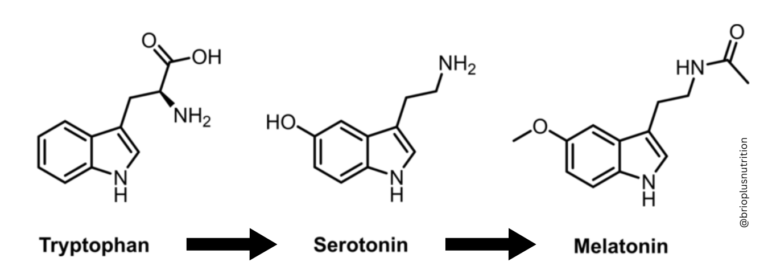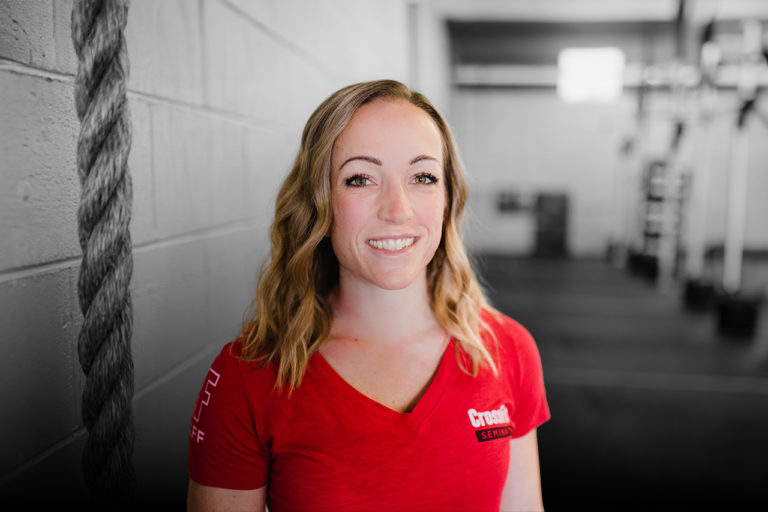Welcome to Part 3 of our “Primer on Protein” series, where we delve into the crucial role of nutrition as the base of the pyramid and decipher CrossFit’s nutrition prescription: “Eat meat and vegetables, nuts and seeds, some fruit, little starch, and no sugar.” The first two words — eat meat — serve as a simple placeholder for animal foods in general (beef, pork, chicken, fish, eggs, dairy, etc.), where the primary macronutrient is protein, a key player in mental health.
This six-part series explores the underappreciated but necessary role of the diet’s “structural elements,” and all the weird and wonderful ways the body uses dietary protein to support good health.
So far, we have explored how dietary protein intake relates to skeletal muscle mass in Part 1 and bone density in Part 2. Strong muscles and dense bones are a power duo when building work capacity across broad time and modal domains across the years of our lives (i.e., health). However, any meaningful health discussion must include physical capabilities, and mental and emotional well-being.
When we eat a tasty meal with any of the foods mentioned above, the body breaks down the protein into 20 unique amino acids. Nine of these are essential (meaning we must get them from the diet), and another six can become essential depending on factors such as training volume, illness, or injury. Like building blocks, the body uses these amino acids to construct every tissue, hormone, neurotransmitter, immune cell, etc. Every bit of you is built out of something you ate.
When it comes to keeping your brain chemistry on point, those building blocks profoundly impact two significant players in the brain: serotonin and dopamine. These neurotransmitters are crucial for regulating your mood, motivation, and overall mental well-being. When these chemicals are out of balance, it can lead to a host of mental health issues like depression, anxiety, mood instability, and self-harm behavior.

Serotonin
Serotonin is often dubbed the “feel-good” neurotransmitter because it primarily stabilizes mood, fostering a sense of well-being and contentment. It’s the stuff that keeps you feeling positive and helps you navigate life’s stressors with more resilience. Serotonin is made from tryptophan, an essential amino acid considered rare. Rich sources of bioavailable tryptophan are found in turkey, eggs, seafood, beef, pork, cheese, and yogurt.
Without enough tryptophan in your diet, your brain’s ability to produce serotonin suffers, negatively affecting your mental health. Although undoubtedly not the only contributing factor, individuals with Major Depressive Disorder were found to have low plasma tryptophan levels.
Have you ever heard the rumor that turkey makes you sleepy? There may be some truth to it. The multi-step conversion of tryptophan into serotonin is followed by further conversion of serotonin into melatonin — the master regulator of sleep. High-quality protein intake will make for a better mood and a better night’s sleep. And a better night’s sleep also improves mental health (more on this in a future series). Everything is related to everything else.
Dopamine
Although dopamine is often described as a “reward” chemical, it is more correct to think of it as your “motivation and drive” chemical. In his book, “The Molecule of More,” Daniel Z. Lieberman writes, “Dopamine has a very specific job: maximizing resources that will be available to us in the future; the pursuit of better things.”
If serotonin is the “content in the here and now” signal, dopamine is the “go get it” neurotransmitter, which needs to be in balance for optimal mental health and physical functioning. With dopamine responsible for wanting, seeking, focus, and motivation, low dopamine levels might be to blame if you’re feeling lethargic or unmotivated.
Dopamine is derived from tyrosine, a conditionally essential amino acid. Although the body can make tyrosine from another amino acid, poor ability to make this conversion or periods of rapid growth, stress, illness, or trauma can cause the body’s need for tyrosine to exceed its internal capacity to produce it. Beef, pork, poultry, fish, eggs, and dairy all provide a readily available supply of tyrosine.
Protein Quality Matters
CrossFit’s nutrition prescription to “eat meat and vegetables, nuts and seeds, some fruit, little starch, and no sugar” is a prescription for health and leads with protein-rich foods on purpose. Our list of food sources in each section looks strikingly similar! Eggs, beef, pork, poultry, seafood, and dairy are complete proteins containing all the required amino acids. These foods are particularly effective in supporting not just muscles and bones but optimal mental functioning, as well. A large-scale systematic review found that individuals who avoid these foods “had significantly higher rates or risk of depression, anxiety, and self-harm behaviors.”
Have you noticed that regularly fueling yourself with balanced meals built around high-quality protein makes you feel energetic and emotionally balanced? Remember, your brain is an organ in your body, a biochemical machine that thrives on the nutrients you provide. If you want some meal inspiration, check out this list of 107 simple and delicious recipe videos on CrossFit’s YouTube channel.
Whether you’re striving to PR your clean and jerk, seeking the motivation to get to your CrossFit affiliate, or finding the resilience to thrive through hard things, your brain needs just as much attention as your body regarding nutrition. Mental health is not separate from physical health. Next time you’re planning a meal, consider how your protein choices fuel your neurotransmitters and enjoy a better mood, sharper focus, and higher motivation. Your future self — both mentally and physically — will thank you!
About the Author
 Jocelyn Rylee (CF-L4) and her husband David founded CrossFit BRIO in 2008, starting in a modest 1500 sq ft space and focusing on personal training. Her dedication to excellence has also earned her a position on CrossFit LLC’s Level 1 Seminar Staff, a role that allows her to share her passion and expertise with aspiring coaches. Jocelyn holds specialties in Endurance, Gymnastics, Competition, and Weightlifting and is also a certified Strength and Conditioning Specialist through the NSCA. As a Level 2 Olympic Weightlifting Coach and a Level 3 referee, she has been deeply involved in the sport, even serving as a board member of the Saskatchewan Weightlifting Association for five years. Her achievements include being Saskatchewan’s top-ranked female Olympic Weightlifter from 2012 to 2015, during which she held provincial records in the Snatch, Clean & Jerk, and Total in her weight class. With an MS in Human Nutrition, Jocelyn loves sharing her knowledge on nutrition and performance through her blog and Instagram as “The Keto Athlete,” where she delves into the science of nutrition and its impact on athletic performance.
Jocelyn Rylee (CF-L4) and her husband David founded CrossFit BRIO in 2008, starting in a modest 1500 sq ft space and focusing on personal training. Her dedication to excellence has also earned her a position on CrossFit LLC’s Level 1 Seminar Staff, a role that allows her to share her passion and expertise with aspiring coaches. Jocelyn holds specialties in Endurance, Gymnastics, Competition, and Weightlifting and is also a certified Strength and Conditioning Specialist through the NSCA. As a Level 2 Olympic Weightlifting Coach and a Level 3 referee, she has been deeply involved in the sport, even serving as a board member of the Saskatchewan Weightlifting Association for five years. Her achievements include being Saskatchewan’s top-ranked female Olympic Weightlifter from 2012 to 2015, during which she held provincial records in the Snatch, Clean & Jerk, and Total in her weight class. With an MS in Human Nutrition, Jocelyn loves sharing her knowledge on nutrition and performance through her blog and Instagram as “The Keto Athlete,” where she delves into the science of nutrition and its impact on athletic performance.
Comments on The Primer on Protein: Part 3 - Mental Health
Hey Jocelyn.
You have been crushing these short, to the point, protein knowledge bombs.
Thank you, Andy
The Primer on Protein: Part 3 - Mental Health
1